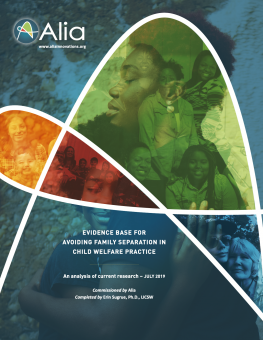
In recent decades, questions have arisen as to whether or not removing children from their primary caregivers (who are frequently their biological parents) is an effective strategy for protecting and promoting their physical and mental health and overall wellbeing. The research on attachment that has occurred over the last 50 years has demonstrated the importance of early attachment relationships to primary caregivers for life-long health and wellbing (Bowlby, 1982), suggesting that disrupting those relationships could have harmful short and long-term consequences. Rather than serving as an intervention that protects and promotes the wellbeing of maltreated chidlren, could foster care itself be considered an "adverse childhood experience?" Does out-of-home placement cause more harm than good?
This report will present an overview of the current social science literature related to the impact of out-of-home placement and family separation on the wellbeing of children who have experienced maltreatment. The following questions were addressed:
- What is the impact of out-of-home placement on the wellbeing of children who have been maltreated?
- In cases when children must be removed from their biological parents, what is the impact of being placed in a foster home with their kin versus being placed in a foster home with strangers on their wellbeing?
Read the research here.